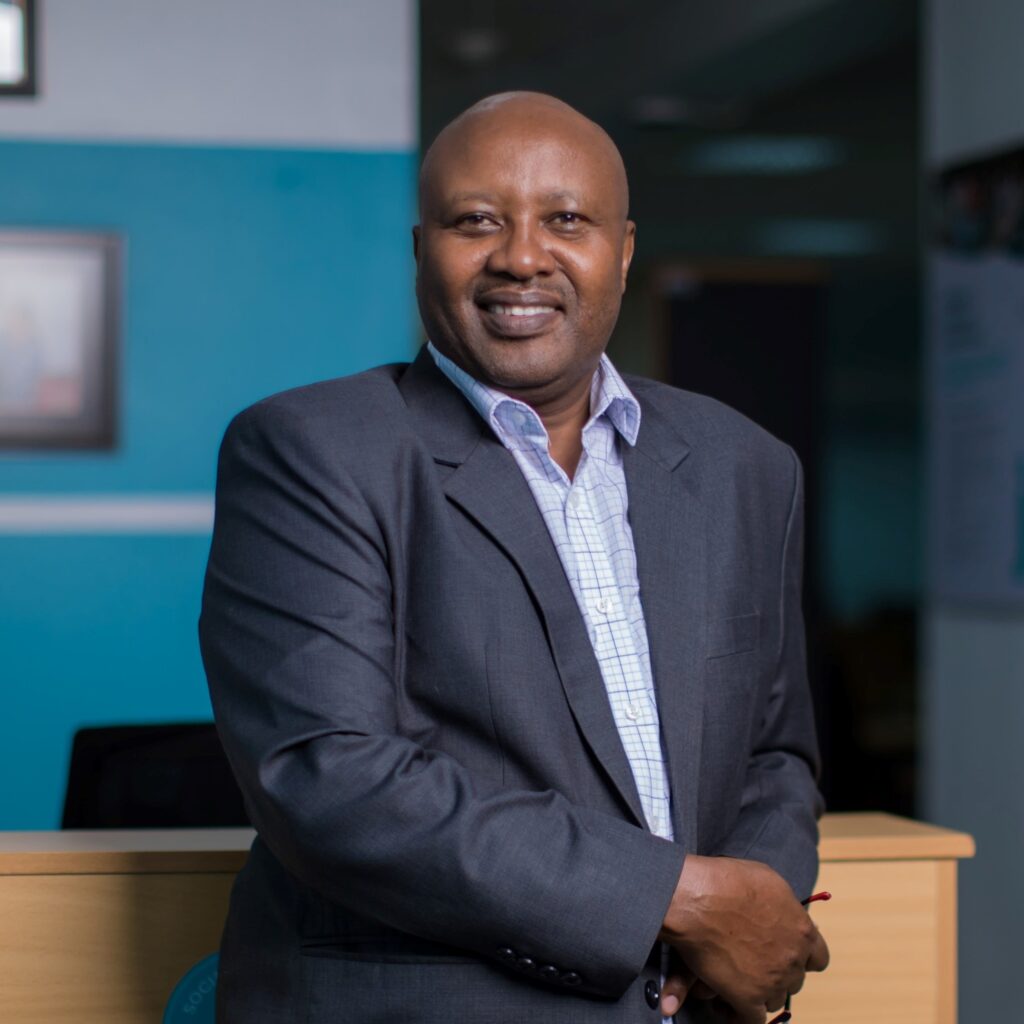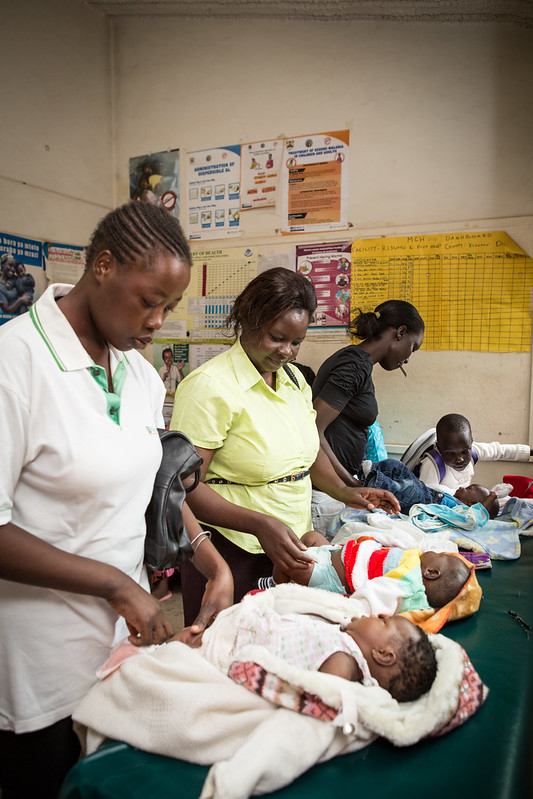When Dr. Gathari Ndirangu first started seeing patients early in his career as a physician in rural Kenya, he cared for a woman who labored for three days with a difficult pregnancy before she could get to the nearest hospital. By then, her unborn baby had died and her own life was in danger. He remembers thinking, “You save her and that is good, but then still ask yourself, ‘Are you going to see another? What more can I do?’”

This desire to “do more” started him on an illustrious career specializing in obstetrics and gynecology and ultimately to public health, where he feels he is better able to make a difference. “As I moved through my career, I really began to see the value of family planning,” he says, “that it is such a simple and cost-effective tool that can make a huge difference to women and girls, helping to alleviate a lot of the suffering they go through with unintended pregnancies.”
This month, Ndirangu takes on the position of Jhpiego’s Director of Family Planning and Reproductive Health, while remaining based in Jhpiego’s Nairobi office. In this role, Ndirangu will oversee Jhpiego’s global team of family planning and reproductive health experts and help roll out a new strategy to guide the organization’s family planning work in 23 countries.
The importance of educating girls
Ndirangu grew up in central Kenya, the oldest of four children. His mother gave birth to him while she was still in high school but returned to the classroom to finish her education, a rarity in those times. Raised by his grandmother in his formative years, Ndirangu understood the value of an education and studied to be a doctor, specializing in obstetrics and gynecology.
“A lot of what we talk about in family planning is preventing early or unintended pregnancy, but we also need to think about what happens if a girl does get pregnant,” says the father of four children, including two daughters. “Girls must be allowed to go back to school, just like my own mother, to complete their education and make sure they are set up to have careers later in life.”

Communities must have ownership over family planning strategies and tools that can put women and girls at the center, Ndirangu says. “The only way to do that is to empower them and make sure they are in control,” he says.
Communities themselves have long recognized the problem, the need for contraception. Self-care tools like DMPA-SC [medroxyprogesterone acetate subcutaneously, an easy-to-use injectable contraceptive] are one way to ensure women have ownership over their health.”
Dr. Gathari Ndirangu
In West Africa, Jhpiego is a “go-to” partner, assisting the Ouagadougou Partnership in the introduction and scale-up of DMPA-SC in the national family planning programs of eight countries. The goal of the project, supported by the Bill & Melinda Gates Foundation, is to increase women’s and girls’ access to a variety of contraceptive methods.
Sharing learnings across countries

With more than 20 years of experience working to expand access to quality reproductive health care through both his clinical and public health efforts, Ndirangu brings a wealth of skills to his new role. He has served on multiple global and regional technical committees, many of which are hosted by the World Health Organization (WHO), including revision of the Medical Eligibility Criteria for Contraceptive Use, development of the FP Digital Adaption Kit and the e-learning course on counseling and prescribing of contraception in pharmacies on the WHO Academy’s COVID-19 mobile learning app.
Following the first International Conference on Family Planning (ICFP) in 2009, Ndirangu joined Kenya’s “FP Dream Team,” which was tasked with repositioning the country’s family planning program. The “Dream Team”—consisting of Ministry of Health officials along with development and implementing partners, including Jhpiego—worked on improving the quality of services and raising awareness of the benefits of family planning and contraception. Their efforts resulted in an increase in the contraceptive prevalence rate from 46 percent in 2008 to 58 percent in 2014. For this achievement, Kenya was awarded the Excellence in Leadership for Family Planning (EXCELL) award at ICFP 2016 in Bali, Indonesia—a memorable moment for the country.
As a project director at Jhpiego, Ndirangu was instrumental in leading efforts to expand access to the hormonal IUD as part of the method choice for clients seeking contraceptive services from the public health sector in Kenya and Zambia, and the lessons learned are being used to do similar work in other countries.
Moving into his new role as family planning director, Ndirangu sees himself as a facilitator of peer learning across countries. “There are a lot of similarities when we look at family planning issues across low- and middle-income countries,” says Ndirangu.
I am looking at myself as more of a facilitator . . . allowing our staff to make their own decisions and foster innovation and collaboration across countries.”
Dr. Gathari Ndirangu
When he’s not working or spending time with his wife and children, you can find Ndirangu anywhere there is a body of water. He has been an avid non-competitive, long-distance swimmer since high school, a hobby he took up to help keep him active and help him relax. “Whenever I travel, I never leave behind my swimming trunks and goggles.”
Leanne Gray is a senior communications specialist at Jhpiego.



